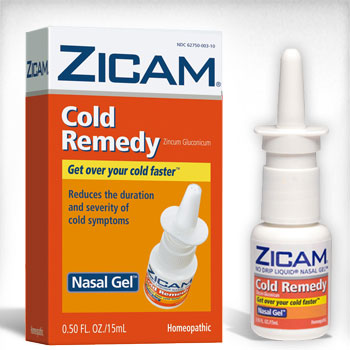It’s a legitimate question!
The reason people ask is that there was an old version of Zicam (an intranasal cold and allergy product) that was withdrawn from the market a number of years ago due to suspicions that the zinc in the product caused anosmia or loss of smell. R

Novolin R also contains zinc so a few people have expressed concern about taking it intranasally.
Is it something we should be worried about?
From Hey to Zinc
The good news is that a recent study actually addressed this exact issue (full abstract below).
Here was their conclusion, “in this paper we provide animal and epidemiological evidence leading to the opinion that zinc in the intranasal insulin formulation delivered in Phases I–III is safe to human health.” R
The reason is simple: there is a TINY amount of zinc in intranasal insulin.
In fact, Novolin R has only 7 micrograms (mcg) of zinc per 100IU. R

Therefore, if you are taking 20IU of Novolin R you are only getting 1.4 mcg of zinc.
This is a minuscule amount and is no cause for concern.
As the authors of the study stated, “zinc concentrations of 0.0007% to 0.00654% in commercial insulin preparations place it away from the 0.01% neurotoxicity cutoff observed in animal studies.”
Additionally, intranasal insulin has been tested in dozens of human studies with no serious side effects. R
So, there you have it.
I felt comfortable enough to begin testing it 7 months ago and I’ve had no problems so far.
Conclusion
It should always be acknowledged that there are risks involved when taking a substance as powerful as intranasal insulin.
However, the current data points strongly to the conclusion that it’s reasonably safe to try for a self experiment.
Of course, start slowly, gradually add or subtract over time, and test it out at your own risk.
I do hope it helps you though! =)
Here are some additional thoughts on the safety of intranasal insulin: Is Intranasal Insulin Safe?
Here’s how to purchase it legally, over the counter without a prescription and try it at home: How To Make Intranasal Insulin
Here are the nasal spray bottles I’ve tested so far (both work well ime!)
Nasal Spray Bottle
Nasal Spray Bottle (Swiveling Head)
Buy Novolin R for $25 from a Walmart Pharmacy without a prescription in the US and Canada
The Study
https://www.ncbi.nlm.nih.gov/pubmed/26386292
Contemp Clin Trials. 2015 Nov;45(Pt B):277-80. doi: 10.1016/j.cct.2015.08.011. Epub 2015 Sep 16.
Position on zinc delivery to olfactory nerves in intranasal insulin phase I-III clinical trials.
Hamidovic A1.
Author information
Abstract
Zinc in pancreatic insulin is essential for processing and action of the peptide, while in commercial preparations zinc promotes hexameric structure and prevents aggregate formation. In 2002, for the first time, insulin was delivered to humans intranasally with resulting cerebrospinal fluid insulin increases, but steady peripheral insulin levels. The novel method of increasing brain insulin levels without changes in the periphery resulted in an expansion of brain insulin research in clinical trials. As pre-clinical research has shown that brain insulin modulates a number functions, including food cravings and eating behavior, learning and memory functions, stress and mood regulation; realization of beneficial effects of insulin in modulating these functions in clinical populations became a possibility with the new direct-to-brain insulin delivery methodology. However, zinc, being integral to insulin structure and function, is neurotoxic, and has resulted in adverse effects to human health. In the last century, intranasal zinc was given preventively during the time of polio outbreak, and in the 21st century intranasal zinc was widely used over the counter to prevent common cold. In both cases, patients experienced partial or complete loss of smell. This paper is the first one to analyze zinc salts and concentrations of those two epidemiological adversities and directly compare formulations distributed to the public with animal toxicity data. The information gained from animal and epidemiological data provides a foundation for the formation of opinion given in this paper regarding safety of intranasal zinc in emerging clinical trials with intranasal insulin.

Leave a Reply
Your email is safe with us.